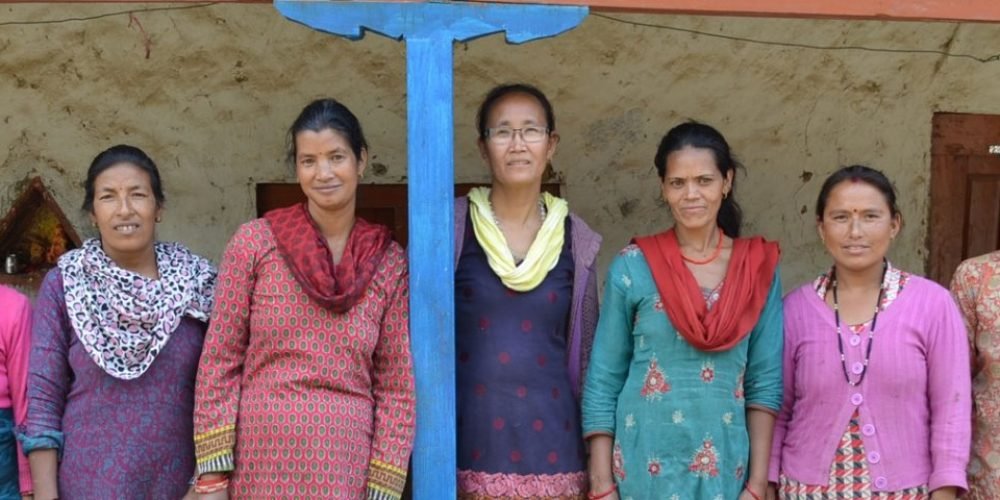Woman kind is far from breaking the stereotypical shackles but they have surely made them weaker. “It is still “a long way to go.” They feel that there are a lot of other barriers that remain to be crossed, gender-equal policies, eradication of dogmatic beliefs regarding women as housewives, and financial access are most notable.
Concept of Traditional Nepali Women: Breaking Stereotypical Myths
One of leading women entrepreneurs in Nepal, Hajuri Bista says that she has a hard time recalling the two genders collaborating. She remembers feminine forerunners of Nepal from early ‘90s, Yangzi Sherpa (Late), Maggie Shah Shanti Chadha Nilam Pande, Brinda Rana and other founding members of WEAN.
Bista opines that even after 20 years of democracy, the mindset that women are exclusively homemakers still prevails. But she is optimistic about change in mentality and women catching up due to recent swarm of efforts for training, development and financing.
Grounds to Cover
CEO of Clean Energy Development Bank Shrestha Shah thinks problems welcome women day one of their business. She asserts that in order to prosper, women need support from financial institutions and more importantly, from male family members. Ambica Shrestha on the other hand – who is the president of The Dwarika’s Hotel – is confident that all women need is equal freedom as males.
The Secret Sauce: What Are Nepali Women in Business Lacking?
Renchin Yonjan, another original member of WEAN describes that an “innovative idea” is what’s being called entrepreneurship today. But she questions it by asserting that the key ingredient – which is entrepreneurial talent – is missing. She points out that the women are either engaged in their family business or in service sector and both of these places are virtually devoid of entrepreneurial aptitude.
Another woman in Business, Barsha Shrestha backs the argument by connoting that people encourage their daughter to engage in employment and not in entrepreneurship. She criticizes parents’ mindset of daughters “put[ting] their money at risk”.
Pramila Rijal criticizes the same frame of mind that women are inclined towards chores rather than following their entrepreneurial yen because of social boundaries.
What Needs To Be Done
Women have been in the sideline in financing department. When it comes to funding women in entrepreneurship in Nepal, Financial institutions and even the male members of family consider women in the minor league and make the case worse for females aching to start their own SME.
President of FWEAN (Federation of Woman Entrepreneurs Associations of Nepal), Rita Bhandary brings to notice the dilemma. Family members show doubts and Banks demand tangible assets for collaterals. A typical housewife – though endowed with business mind – thus faces extreme difficulty in obtaining initial funds.
Because there financing troubles from the onset, women entrepreneurship in Nepal begins with a wobbly foundation leading to a dead-end many a times. Marketing problems create the same situation for women. Shrestha emphasizes the importance of equal financing opportunities by stating that women will always be at the glass cliff unless appropriately financed.
Rise in SME culture in Recent Years
SMEs (Small and Medium Enterprises) in contrast have provided females a decent platform to further their economic growth. Nepali women – responsible for 14,300 SMEs and 2 percent of GDP – also contribute to various families’ income by providing occupation to over 200,000 workers.
Across the nation, women have been starting SMEs after training, resources and support. Alka Rajouria Rijal says women are creating opportunities when Nepal is getting flooded with unemployment. Entry of women in the boulevard of business has also been changing the perception of role of women. A recent study suggests that if credit requirements of $106 million can be met, more contribution can be made to the national economy.
Stronger Networking is the Answer
Barsha Shrestha believes that networking is the key to any SME’s expansion in Nepal. Renchin Yonjan stresses the same and divides the “network” in three dimensions: particular sector, entrepreneurs and national and multi-national level. Yonjan also feels that women are more soft-spoken and polite, and therefore more potent material for networking.
Exposure is the focal point of Yonjan when she sheds light on things that will help women achieve what they want. She urges women to get brave, bold, develop contacts and snap out of their hesitation if they are to grow. Greater network is integral for expansion, Yonjan sights.
Only Sky is the Limit
Keeping Yonjan and Shresta’s views in mind, SMEs haven’t been able to make it past medium scale. A woman starting small scale enterprise is likely to keep it that way. Additionally, the rise is stereotypical in nature as women pick up categories like lifestyle and education for entrepreneurship. These segments are lucrative but they completely ignore the bigger picture.
Coping with Changing Business Conditions in Nepal
Again Yonjan questions the perceived role of women in Nepali society. She feels the word ‘woman’ only forms an image of a housewife. And when the phrase “woman in business” is heard, the only images forming up in the head are of women in childcare, lifestyle, education or cosmetic.
She acknowledges how mindsets are changing with the trends changes in technology. She feels these changes and access to communication means have enabled women to strengthen their footing but also says that the very same have made the marketplace a lot more competitive.
The aim is to seek new sector and discover more productive areas for women, not to steal men’s share of the pie. She then relates his point to why thinking beyond SME mentality is important.
Conclusion
Women entrepreneurship in Nepal is gaining more ground in the present day. The restrictions have not been able to completely block women from entrepreneurship but they have managed to affect their growth.
It might seem deterring to some men that women have become dominant in a couple of sectors recently but those sectors are very limited and men should not be bothered by this fact anyways. In fact, experts feel men should encourage more women so a friendly completion can lead to better services and Better Nepal while raising the living standard of both genders and thus helping empowerment programmes for women in Nepal.
Women on the other hand need to develop entrepreneurial aptitude and aim higher as limited state of mind will only yield limited results.
Source: (tradekey.com)
Labels: priyanka singh taj pharma, taj pharma, taj pharmaceuticals, taj pharmaceuticals news, taj pharmaceuticals director, taj pharmaceuticals reviews, priyanka taj pharma, Priyanka Singh director taj Pharmaceuticals, Priyanka Singh director taj Pharma taj generic, Priyanka singh, taj pharma news, priyanka singh taj, priyanka singh director, Priyanka singh dynamic entrepreneur, taj pharmaceuticals limited, taj pharmaceuticals limited Bombay, taj pharmaceuticals limited mumbai, taj pharmaceuticals limited promoters, taj pharmaceuticals promoters, taj pharma promoters, taj pharma Bombay, Taj Pharmaceuticals mumbai, Taj Pharmaceuticals Bombay


